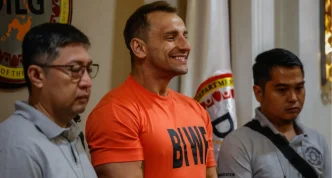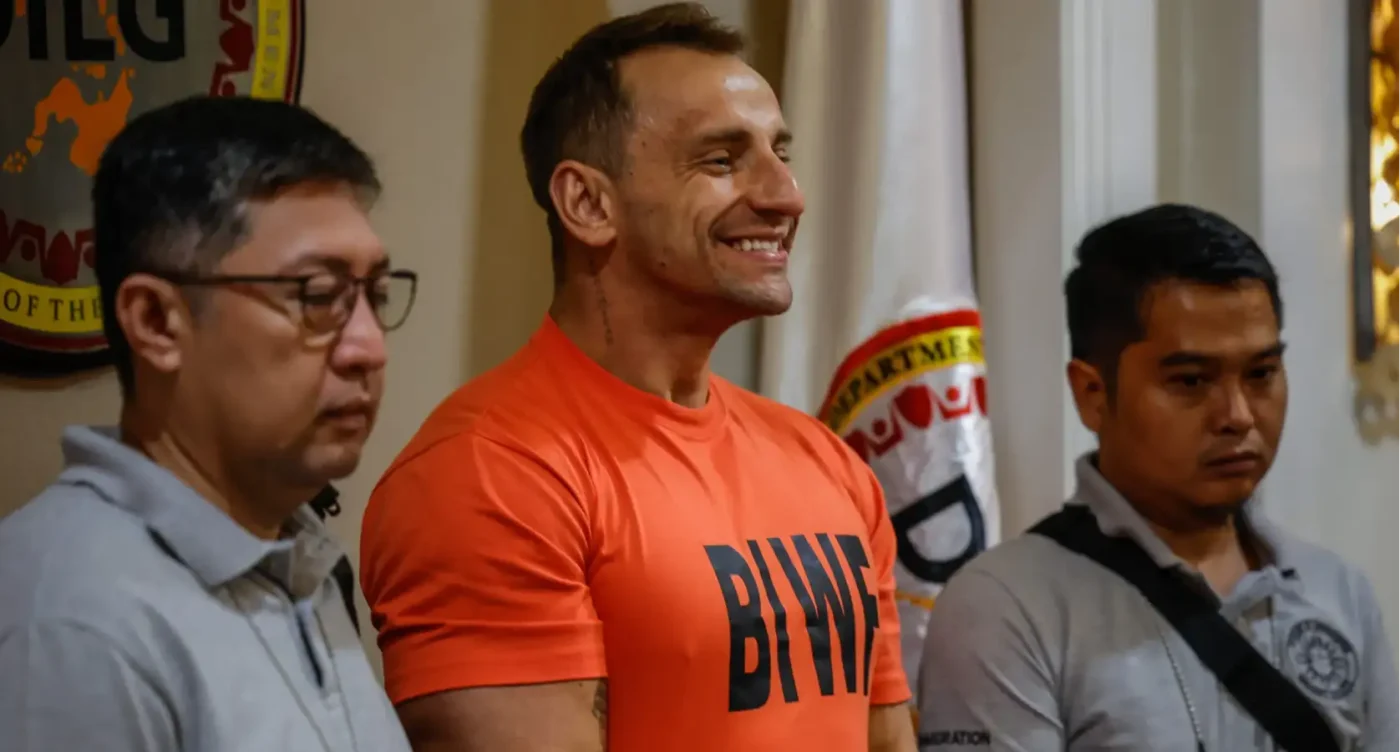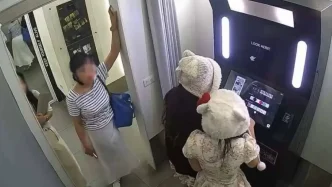In a case that has sparked outrage across the Philippines, Russian vlogger Vitaly Zdorovetskiy, known for his provocative online stunts, is set to face trial in Manila next week on three counts of unjust vexation. The charges stem from a viral livestream in April 2025, during which Zdorovetskiy was seen harassing individuals in Taguig City’s Bonifacio Global City (BGC), a bustling commercial district. Department of Interior and Local Government Secretary Jonvic Remulla has confirmed that, if convicted, the vlogger will serve his sentence in the country, as neither Russia nor the United States—where Zdorovetskiy holds a green card—has agreed to accept him for deportation.
Details of the Incident
The incident that led to Zdorovetskiy’s arrest on April 3, 2025, unfolded in BGC, a hub for business and nightlife in Metro Manila. In the widely circulated livestream, the vlogger was filmed grabbing a security guard’s hat, attempting to seize another guard’s firearm, and threatening to rob a woman. The footage, which quickly spread across social media platforms, drew sharp criticism from Filipino netizens and local authorities alike, who condemned the behavior as disrespectful and dangerous.
Zdorovetskiy has since been held at the Bureau of Immigration detention facility in Camp Bagong Diwa, Taguig City. The charges of unjust vexation, a criminal offense in the Philippines often associated with causing annoyance or distress, carry a potential penalty of three months to one year in jail per count. If found guilty on all three counts, the vlogger could face up to 18 months in a Bureau of Jail Management and Penology facility, according to Secretary Remulla.
“We will serve his sentence, I made sure of that” said Remulla during a press statement on Sunday, June 1, 2025, emphasizing the government’s resolve to hold Zdorovetskiy accountable under Philippine law.
Deportation Complications
While deportation is often a standard outcome for foreign nationals convicted of crimes in the Philippines, Zdorovetskiy’s case presents unique challenges. Secretary Remulla revealed that both Russia, the vlogger’s country of origin, and the United States, where he holds a green card, have refused to accept him. This unusual situation has left Philippine authorities with limited options for resolving the case through deportation.
“The problem is, Russia does not accept him, and the US, where he is a green card holder, also refuses to accept him. So we do not know if we will deport him back to his home country” said Remulla, speaking in Filipino during a recent briefing. This statement underscores the diplomatic and legal complexities surrounding Zdorovetskiy’s status, raising questions about how long he might remain in Philippine custody if convicted.
Legal Proceedings and Defense Claims
As Zdorovetskiy prepares for trial, additional details have emerged about his attempts to mitigate the charges. According to Remulla, the vlogger wrote to him personally, requesting that the charges be dropped and citing mental health issues as a contributing factor to his behavior. While the specifics of this correspondence remain undisclosed, the plea suggests that Zdorovetskiy may seek leniency or alternative resolutions during the court proceedings.
Under Philippine law, unjust vexation is a relatively minor offense, often resolved through fines or short jail terms. However, the high-profile nature of this case—amplified by the viral video and public backlash—may influence the court’s approach. Legal analysts note that the prosecution could argue for a stricter penalty to set a precedent for foreign nationals engaging in disruptive behavior, particularly in a country where respect for local customs and authority is deeply valued.
Public Reaction and Broader Implications
The incident has ignited a broader conversation in the Philippines about the conduct of foreign influencers and content creators, many of whom flock to the country for its vibrant culture and scenic destinations. Social media platforms have been abuzz with criticism of Zdorovetskiy, with many Filipinos expressing frustration over what they perceive as a lack of respect for local norms. Hashtags related to the case have trended on X, reflecting a mix of anger and calls for stronger regulations on foreign visitors who exploit public spaces for online clout.
Beyond the immediate public outcry, the case also highlights the challenges faced by Philippine authorities in managing the intersection of digital media and law enforcement. Livestreaming platforms, while a source of entertainment and income for many, have increasingly become spaces for controversial or harmful behavior, often with real-world consequences. The government may face pressure to introduce new guidelines or penalties targeting online content creators, especially those whose actions disrupt public order.
Cultural and Legal Context
For many Filipinos, the incident in BGC is not just a legal matter but a cultural affront. The Philippines, known for its hospitality and warmth toward visitors, places a high value on mutual respect. Actions perceived as mocking or belittling locals—such as Zdorovetskiy’s behavior toward security guards—are often met with swift condemnation. This cultural context may play a significant role in how the case is perceived by the public and handled by the courts.
From a legal perspective, the case also sheds light on the Philippines’ approach to foreign nationals who violate local laws. While the country has mechanisms for deportation, as outlined in immigration policies, the refusal of both Russia and the US to accept Zdorovetskiy complicates the process. This situation could prompt discussions on bilateral agreements or reforms to address similar cases in the future, ensuring that foreign offenders are not left in legal limbo within Philippine borders.
Impact on Victims and Community
The individuals directly affected by Zdorovetskiy’s actions, including the security guards and the woman threatened during the livestream, have largely remained out of the public eye. However, reports indicate that the guards have filed formal complaints, which form the basis of the unjust vexation charges. Their willingness to pursue legal action reflects a growing awareness of personal rights and protections, even in encounters with seemingly powerful or influential figures like online personalities.
In BGC, a district known for its modern infrastructure and international appeal, the incident has prompted local businesses and security firms to reassess safety protocols. Community leaders have called for increased vigilance and training to handle confrontations involving foreign visitors, particularly those filming content in public spaces. While the area remains a popular destination, there is a palpable concern that such incidents could tarnish its reputation if not addressed decisively.
Looking Ahead
As Vitaly Zdorovetskiy’s trial approaches, the case is likely to remain a focal point of public and media attention in the Philippines. The outcome could set important precedents for how the country deals with foreign nationals involved in criminal behavior, as well as how it navigates the complexities of digital-age offenses. For now, questions linger about the vlogger’s fate—whether he will serve a full sentence, face additional penalties, or find a resolution through diplomatic channels.
Meanwhile, the incident serves as a reminder of the power and pitfalls of online content creation, particularly in a globalized world where cultural boundaries are easily crossed, sometimes with significant consequences. As the court prepares to hear the case, many in Manila and beyond will be watching closely, hoping for a resolution that upholds justice and respect for all.
















